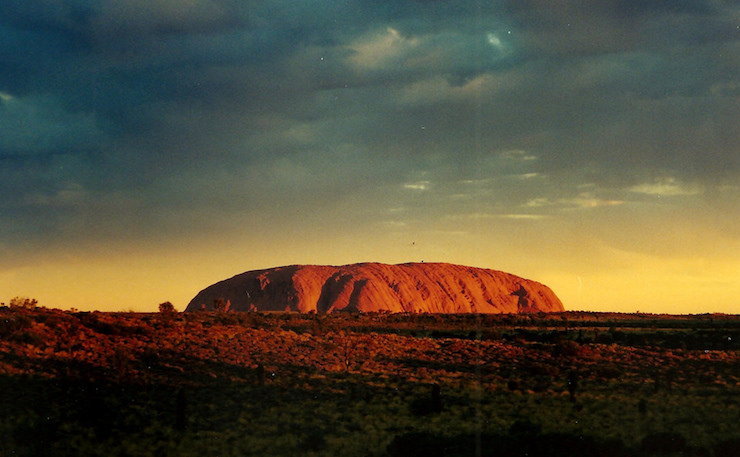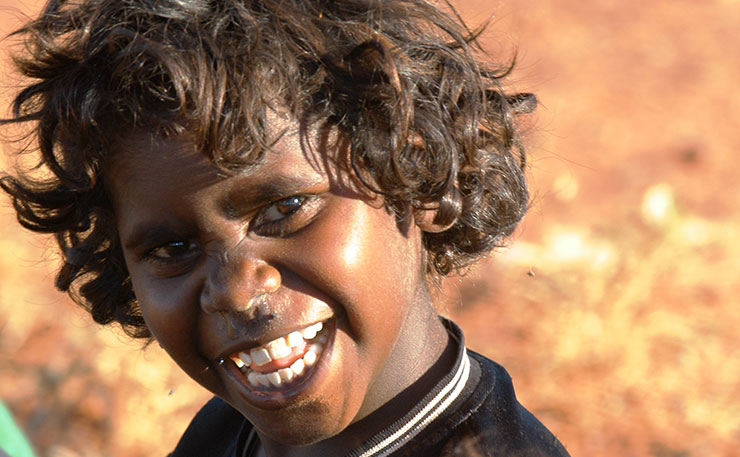The answer to many of the world’s challenges lies in the past, writes Teila Watson.
I was asked to talk about our culture and the planet in the last two years. I wanted to take the opportunity to not only look at what the last two years have been like, but also how things got this way and where we go from here. I’ve realised in the last two years, how quickly two years can pass. How much can happen in two years and how important the next two years are.
So I will start at the beginning, beyond 60,000 years ago, because that is still how many of us locate ourselves.
When I say I am Kungalu, I am acknowledging that for tens and tens and tens of thousands of years, one parent of every child in my bloodline, has come from that country. By identifying myself in this way, I locate myself and my children through my family, from now, since 60,000 years ago and into the future.
I am also acknowledging the relationship that we have with our country, a relationship that has grown and been sustained through highly sophisticated and refined forms of substantive eco-science, and of course many generations of eco-scientists, or Murri’s in our own terms. Because in all that time, we didn’t just survive on – or off – our land, but we thrived with it, through a complex balance of relationships which ensured that our existence was sustainable and abundant.

Furthermore it is safe to say, that prior to colonialism, every inch of this continent was regularly maintained sustainably, by First Nations groups, through similar relationships.
But it wasn’t just our relationship with land, that was sustainable in this way. Our relationships required and thrived off social sustainability as well. Our boarders never changed, at times they may have been adjusted, because of the ice ages and such but there was never open warfare. The idea of stealing land, simply just didn’t exist.
A lot can be learned in 60,000 years. Yet First Nations people continue to suffer from genocide in this continent, in the last two years, two hundred years and the last two weeks.
Two of the most productive methods of colonialism are myth making and dehumanisation, when we make someone the ‘other’ it becomes acceptable to give them less respect, like we have been seeing happen in the public debates around same sex marriage.
Saying a group of people are sub-human or the missing link is like handing out licences to kill. Because if humanness is denied its much easier to feel less guilt in withholding rights, killing, stealing and lying. This negative gaze has been so useful for so long, that it’s often hard to shake.
My late father, Dr Ross Watson, knew all the trees in the bush by name, he knew how to find food, read tracks and even how to burn country in order to keep it clean and healthy. He used to say that colonialism invented “wilderness”, labelling our bushland inhospitable, hostile and unforgiving. This negative gaze that they created to talk about our country is similar to the gaze they invented to talk about us, just as another black death in custody is often seen the same way as just another mine, or just anther farm.
A few more AFL players end up leaving the sport because of being racially vilified, like a few more non-native animals kill a few more native ones and destroy a few more habitats.
It’s been said that in the last two years around 50 per cent of the Great Barrier Reef has died. This continent has the highest extinction rate for plants and animals in the world. And our government continues to push for the Adani Carmichael mine. The Queensland government estimates that the mine will run for 25 to 60 years. And yet the top climate scientists are telling us that we have just three years to drastically decrease our unsustainable practices if we are to survive.
America is largely still a massive cultural influence through the internet and social media, so we all know Black Lives Matter, Standing Rock and maybe even the horrible effects of fracking in America. Much closer though, you may have heard of the murders of First Nations people in custody? Or that over 80 per cent of the Northern Territory is covered in licences and applications for fracking.
In the last five years particularly, more and more people are becoming very seriously politically engaged. Right across the continent and the world. People are starting to wake up to what is happening socially and ecologically as well. Part of this, I think, is because its cool to be woke.
In this era of technology and social media we have seen capitalism reach new heights in the way that it connects so intimately with each of us. The tools that we have today are surpassing so many that we have had in the past, and yet we still find ourselves in the midst of a global crisis.

With the world’s wealth of information literally at our fingertips, a few seconds from consumption, we still haven’t been able to turn global warming around, nor have we been able to find balance in our social relationships, locally or globally.
All the while climate change is no longer on its way. In the last two years there have been catastrophes all over the earth, in the last two weeks it was Puerto Rico, which was hit with two hurricanes in a matter of weeks. There is currently no electricity, no fully functioning hospitals, water and food are scarce and there are 3.5 million people in urgent need of support. This is what climate change looks like. Millions of people losing their homes and their livelihoods, displaced and at threat, vulnerable.
If we are to survive climate change, then colonialism, racism and capitalism cannot. It can no longer be at the heart of mainstream culture. We must ask ourselves if the current foundations that ‘Australian culture’ relies on, are strong enough to enforce the solutions required for human survival on this continent?
We know that there are more sustainable ways to live both in relation to land and socially, and this knowledge, despite being the oldest living knowledges on earth, are still accessible.
Now, I want to be very clear that what I’m suggesting is that we strengthen our relationships. I’m suggesting that we start to identify how we can live with the land as opposed to through the killing of it. I think with the technology of today and the genius of over 60,000 years of compiling and refining substantive bio-psychosocial eco-science research, creating a future is definitely possible.
I often wonder, if Land was not commodified in the name of ‘progress’ would necessities need to be monetised? Would this incredible power imbalance be sustainable or even attainable?
If necessities were not monetised and poverty non-existent, would we still see such massive amounts of people ready and willing to poison and attack the only physical giver of life?
My Aunty, Dr Lilla Watson says, “We need to make the future stretch as far infront of us as it does behind us”.
So in only three years, how do we embed respect for land into our processes, both in the stories we tell and in the production?
How do we, as artists, thinkers and creators and influences of culture, disrupt this negative view of land and people and remind people of our inherent goodness?
How do we create or enhance culturally, socially and ecologically sustainable relationships, between each other and between ourselves and the planet?
PLEASE CONSIDER SHARING THIS STORY ON SOCIAL MEDIA: New Matilda is a small independent Australian media outlet. You can support our work by subscribing for as little as $6 per month here.
Donate To New Matilda
New Matilda is a small, independent media outlet. We survive through reader contributions, and never losing a lawsuit. If you got something from this article, giving something back helps us to continue speaking truth to power. Every little bit counts.




